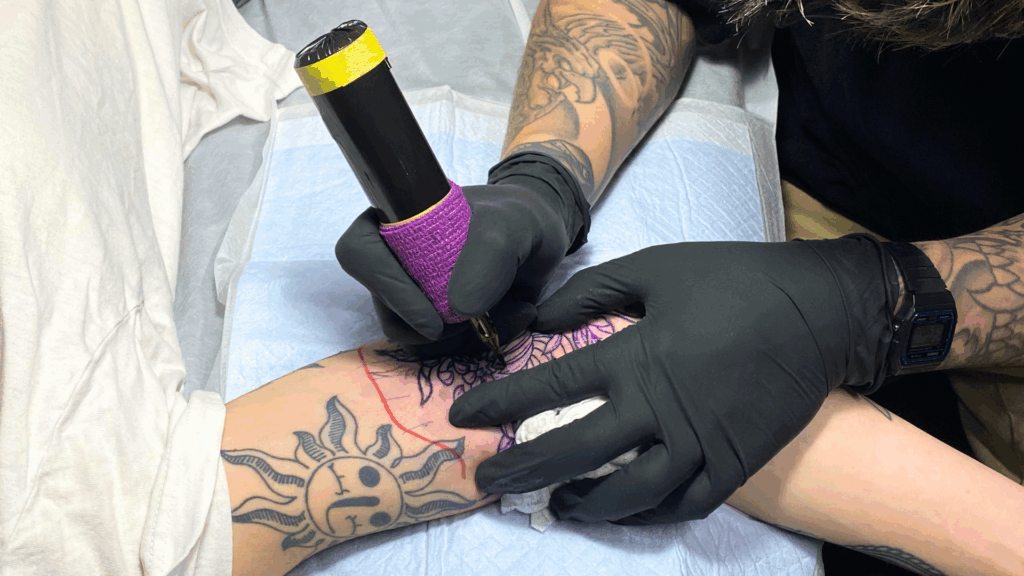One of the most important things you need to be able to do when meeting someone for the first time, is to introduce yourself. Depending on the social context, there are various appropriate ways to do this. In this article, we briefly explain how to introduce yourself in Korean, both formally and semi-formally. Here is a brief guide on how to introduce yourself in Korean when you are in the land of the morning calm.
How to introduce yourself in Korean: Greetings
It goes without saying that the first thing to do to introduce yourself in Korean is to say hello. In our article on how to say hello in Korean, we saw that there are various ways to do this. When meeting for the first time, the informal, “annyeong (안녕) greeting is not recommended as it is seen as rude and impolite expression, (unless you are greeting children or with friends), so you should always say “annyeonghaseyo”. Annyeonghaseyo (안녕하세요) is used to introduce oneself in both formal and semiformal contexts. In formal situations, another form can also be used, namely cheoeum boepgesseumnida (처음 뵙겠습니다), which literally means “see you for the first time”.
The second greeting when you introduce yourself in Korean would be mannaseo bangapseumnida / bangawoyo (만나서 반갑습니다 / 반가워요, ‘Nice to meet you’). The first formula, ending in –seumnida (-습니다), is more formal and should be used in work contexts, while the second, ending in -yo (-요), is semi-formal and can be used in more relaxed contexts. However, there is nothing stopping you from always using the bangapseumnida form, simply to be more polite and not give the impression that you want to get too familiar from the start.

Saying your name in Korean
The time has come to learn how to let others know your name when you introduce yourself in Korean. If it is necessary to say one’s surname as well, such as in a business environment, then the surname should come first following the first name afterwards. Again, we will have to choose between the more formal form in -seumnida and the semi-formal form in -yo and use the most appropriate one. Apart from this, there tend to be two ways of saying one’s name. Korean verbs always goes at the end of the sentence, so we will say our name first followed by -imnida or -rago hamnida, if we choose the more formal register, or by -yeyo or -rago haeyo if we choose the semi-formal register. See below for examples to clarify:
FORMAL: 데이비드입니다 (David imnida) = I’m David.
데이비드라고 합니다 (David rago hamnida) = I am called David.
SEMI-FORMAL: 데이비드예요 (David yeyo) = I’m David.
데이비드라고 해요 (David rago haeyo) = I am called David.
There is also a third expression, which is a bit longer but still widely used. In this case, the name should be inserted in the middle of the expression, so je ireumeun (제 이름은, meaning “my name”) + noun + verb to be, as in the following examples:
FORMAL: 제 이름은 데이비드입니다 (Je ireumeun David imnida) = My name is David.
SEMI-FORMAL: 제 이름은 데이비드예요 (Je ireumeun David yeyo) = My name is David.
You may have noticed that the final part of this expression is the same as one of the ones we saw earlier. This is because in Korean, the verb doesn’t match the subject, so whether it’s first or third person doesn’t matter. Learn here about the main features of the Korean language.

Add other information about youself
If you introduce yourself in Korean, you usually add other information about yourself, such as your home country, your occupation or your hobbies.
It is not uncommon to highlight your nationality/home country by introducing yourself with the expression: COUNTRY OF ORIGIN + eseo on + NAME + imnida/yeyo. This literally means “I am xxx, I come from y”, as in the example 미국에서 온 데이비드입니다/예요/라고 합니다 (Migookaeseo ohn David imnida/yeyo/rago hamnida). Other ways of saying “I’m from the US” or “I’m American” are:
FORMAL: 미국에서 왔습니다 (Migookeseo wasseumnida) = (literally) I came from the US.
미국사람입나다 (Migook saramimnida) = I am American.
SEMI-FORMAL: 미국에서 왔어요 (Migookeseo wasseoyo) = (literally) I came from America.
미국사람이에요 (Migooksaramieyo) = I’m American
*There is no difference between masculine and feminine.
It is also not difficult to express one’s occupation in Korean. You simply use the verb “to be”, which we have already seen above, in the forms -imnida or -yeyo (which becomes -ieyo if the noun preceding it ends in a consonant). If you are a student, for example, you would say haksaengieyo (학생이에요, I’m a student).
If you want to say more about yourself, you can also talk about your hobbies and what you like. This is usually done when you want to establish a friendly relationship with other speakers, so I would recommend using the semi-formal register, which is more casual. Just say the thing you like followed by the verb johahaeyo (좋아해요, I like it). If you like soccer, for example, you would say chukkureul johahaeyo (축구를 좋아해요).
So, here’s how to introduce yourself in Korean. If you enjoyed this article, keep following our blog and do not hesitate to contact us about living and studying in Korea.








